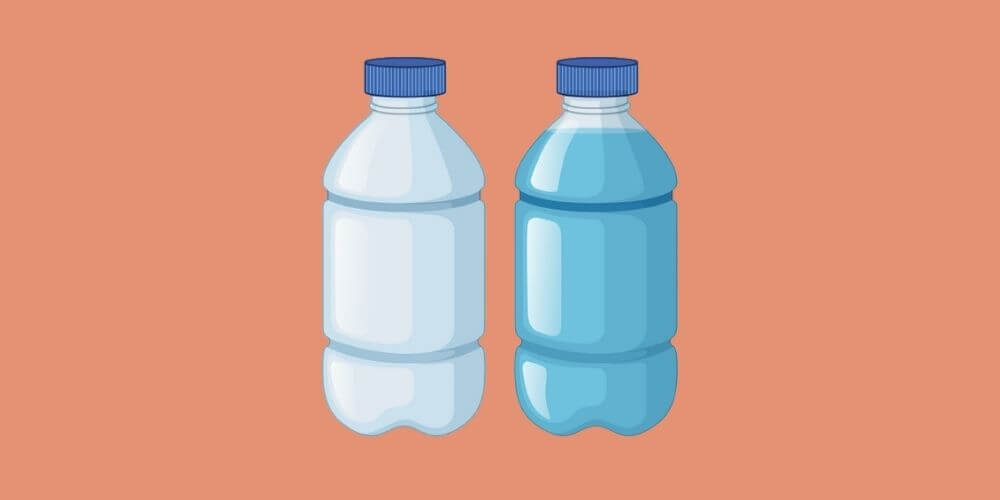If you’re a homeowner, you know that having access to safe, clean water is essential. But what happens if your home’s well water isn’t safe to drink? Is there anything you can do to make it drinkable?

In this blog post, we’ll explore the issue of well water safety and offer some tips on how to make your well water drinkable.
Well water contamination can be caused by things such as excessive rain, poor location of the pump, or pipes that lead directly into a stream or body of water.
Some ways that you may be able to get safe drinking water from your well include using a filtration system, boiling your water before drinking it, and installing an ultraviolet light on your faucet.
Before making any major changes to your home’s well, we recommend contacting a local water treatment expert for advice.
An expert can test the quality of your water and tell you what steps you need to take in order to make it safe to drink
If you’re able to improve the safety, taste, or hardness of your well water, then by all means go ahead. Just be sure that you know how to do so safely before starting any projects yourself.
If it turns out that there is no way for you to make your well water drinkable, don’t worry: Filtered and bottled water are readily available at most food stores and supermarkets and may still be cheaper than buying a filtration system for your home well.
How do you know if well water is safe to drink?
If you’re relying on well water for your home, it’s important to ensure that the water is safe to drink. Wells can be contaminated by a number of things, including bacteria, chemicals, and metals.
Knowing how to test your well water and what to do if it’s not safe can help keep you and your family healthy.
To check if your well water is safe, you’ll need to test it for total dissolved solids (TDS), nitrate, and bacteria. Testing kits are available at most hardware stores or through county extension services
If your water tests positive for high amounts of TDS, nitrates, or bacteria, it’s recommended that you seek out alternative sources of drinking water, such as bottled water or a home filtration system.
How clean is well water?
Well, water typically tastes better than the tap water you’d get from a municipality, but it may not be as safe to drink. That’s because wells are more susceptible to contamination than municipal sources of drinking water.
Some common contaminants found in well water include parasites, bacteria, viruses, arsenic, nitrates, and uranium. Exposure to these substances can lead to health problems including digestive issues, neurological disorders, and certain types of cancer.
Filtering your well water can help remove some of the harmful contaminants that could be present in your drinking water, including metals and bacteria.
If you’re using well water for cooking or showering, a whole house filter can help protect you and your family from harmful substances.
Does well water need to be filtered?
The short answer is yes: Well water often contains high levels of minerals that affect its taste and can cause buildup inside pipes and on faucets.
If you’re concerned about the quality of your home’s well water – or if your water isn’t safe to drink – you should consider installing a filtration system.
Using a water filter can improve the taste, odor, and clarity of your water. It can also help remove many harmful contaminants, making it safer for you to drink and use every day.
Many types of filtration systems are available, including whole house filters and under-sink units. Each type has its own benefits and drawbacks.
The best way to find the right filter for your home is to talk with a water treatment expert or plumber for advice about what kinds of contaminants may be in your water.
Is well water better than filtered water?
Well water can be just as clean, if not cleaner than tap water, but it is often harder. Hardness in drinking water is caused by high amounts of calcium and magnesium ions that interfere with cleaning, may damage certain types of pipes, and cause scale to form on hot-water tanks.
If your goal is to make your drinking water taste better, softer, or less cloudy, then filtered or bottled waters are the option for you. They will also help make kitchenware like dishes and glasses sparkle.
However, if you want your well’s minerals removed from the equation, then depending on your home’s specific features, you may want to look into finding a filtration system.
The choice is ultimately up to you and your family. No matter which way you decide to go, just be sure that you test the drinking water quality in your home regularly. Knowing what’s in your water will help ensure that it’s safe for everyone in your household.
Well Water FAQs
Q: What should I do if I think my well water isn’t safe to drink?
A: If you’re uncomfortable drinking your well water, there are several steps you can take to make it more drinkable, including boiling the water before drinking it, installing a filtration system, or using an ultraviolet light. You can also contact a local water treatment expert for advice on how to make your well water safe to drink.
Q: What should I do if my well water has a bad smell?
A: If your well water smells or tastes bad, then you may have a bacteria problem. Boiling the water before drinking it will help to kill any harmful organisms living in the water and make it safer to drink
Q: Do I need to treat my well water with chlorine?
A: Yes, well water should always be treated with chlorine to make sure no harmful organisms are living in the water. However, if you have certain kinds of bacteria growing in your well water, then the chlorine treatment may not work on its own. If that’s the case, then you’ll need to consider installing a filtration system to clean your well water.
Q: Is it normal for well water to have a yellow or orange tinge?
A: Yes, if your well water has a yellowish appearance, this is usually due to iron in the water. Removing the iron from the water will make it safe to drink and improve its appearance considerably.
Q: How do I know if my well water has a lot of minerals?
A: To determine whether or not your well water has a high mineral content, you should conduct a simple test on the water. Fill a clear glass with some water and let it sit for a few hours. Then, look at the bottom of the glass to see if any particles have settled there. If the glass of water has a filmy residue on it or looks hazy, then you will probably need to install a filtration system.
Q: I have well water but live in an area with high levels of arsenic. What should I do?
A: You should contact your local water supply authority to find out what the recommended level of arsenic in your well water is and then test it. If it’s too high, then you may want to consider switching to bottled water or installing a filtration system for use with your home’s well water.
Final Thoughts
Just as bottled and purified waters are often marketed as being healthier and tastier, the minerals in well water might make it seem like a ‘natural’ choice.
However, if you don’t want to ingest these minerals and your well is not on public utility lines, then using the filtered option may be for you.
Well water can have many benefits, but it’s also possible for contaminants to be present in the well itself or the surrounding area. You’ll want to test your water regularly so that you can ensure it’s clean and drinkable.

